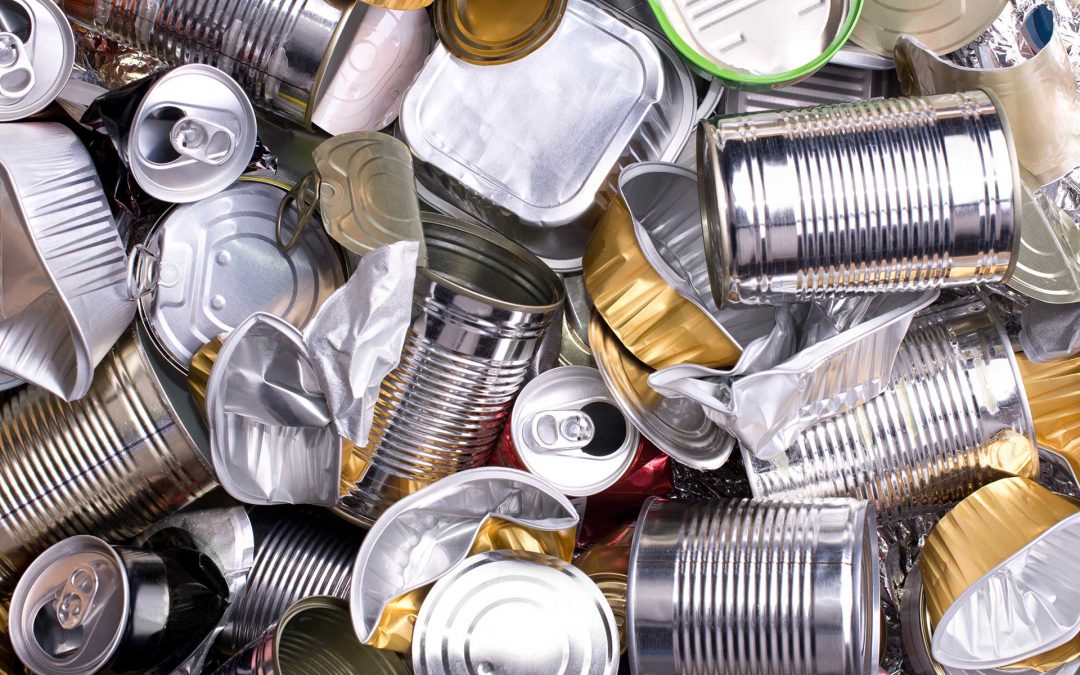The environmental and economic benefits of scrap metal recycling cannot be overlooked. Recycling is necessary for society: it saves global resources, stimulates the economy, reduces the amount of waste in landfills and prevents the destruction of ecosystems.
Here are some key facts about scrap metal recycling.
- Did you know that aluminum can be recycled using less than 5 percent of the energy used to make the original product? According to the U.S. Environmental Protection Agency, recycling a single aluminum beverage can help conserve enough energy to power a 60-watt light bulb for more than four hours.
- Scrap Metal Recycling is a core business operation of the aluminum industry. In the United States and Canada, the industry recycles more than 5 million tons of aluminum each year, most of which goes back directly into the North American supply.
- Producing recycled aluminum is 92 percent more energy efficient than making new aluminum.
- The world produces as much as 50 million tonnes of electronic and electrical waste (e-waste) a year, weighing more than all of the commercial airliners ever made. Only 20% of this is formally recycled.
- In 2016 the world generated e-waste — everything from end-of-life refrigerators and television sets to solar panels, mobile phones, and computers — equal in weight to almost nine Great Pyramids of Giza, 4,500 Eiffel Towers, or 1.23 million fully loaded 18-wheel 40-ton trucks, enough to form a line 28,160 km long, the distance from New York to Bangkok and back.
- Only 9 per cent of the 3.2 million tonnes of plastic waste generated each year in Canada is recycled. As much as 2.8 million tonnes – the weight of 24 CN Towers – ends up in Canadian landfills.
- Recycling companies are part of a worldwide commodity sector driven by basic supply and demand. The Bureau of International Recycling (BIR) estimates 1.6 million people work directly in the global recycling industry, handling more than 600 million tonnes of recyclables each year and generating billions of dollars in economic activity worldwide.
- Currently about 45% of the world’s annual production of steel, over 40% of the world’s copper production, and about 33% of the world’s aluminum is produced from recycled material. Canadian recyclers process between 16 and 18 million tonnes of scrap metal each year.
- A 2016 study by ICF International found that the combined greenhouse gas (GHG) emissions associated with the transportation and refrigeration of beverages in aluminum cans are lower than those associated with beverages in glass or plastic bottles under the same conditions.
- In a landfill, aluminum and tin cans will stick around for decades. It can take as long as 50 years for a steel food can to decompose, and as long as 200 years for aluminum to break down.
There is still a lot of work to be done in raising the recycling rate for metals. Despite the undeniable benefits of scrap metal recycling, a UNEP study has pointed out that less than one-third of 60 metals reviewed have a recovery rate of more than 50 percent. In order to improve worldwide recycling rates, the study makes the following recommendations:
- Encouraging product design that makes disassembly and material separation easier
- Improving waste management and recycling infrastructure for complex end-of-life products in developing countries and emerging economies
- In industrialized countries, addressing the fact that many metal-containing products are ‘hibernating’ in places likes drawers and closets and others, such as mobile phones, are all too often ending up in dustbins.
Take responsibility for your waste and help the economy and the environment by recycling your scrap metals. At Manville Recycling, we’re proud to be a leading Canadian recycler. We will accept and collect all of your recyclable material, including copper pipes, old motors, old metal appliances, plumbing scrap, e-waste, and much more. Check out this page for a list of acceptable metals and metal objects that we collect.
